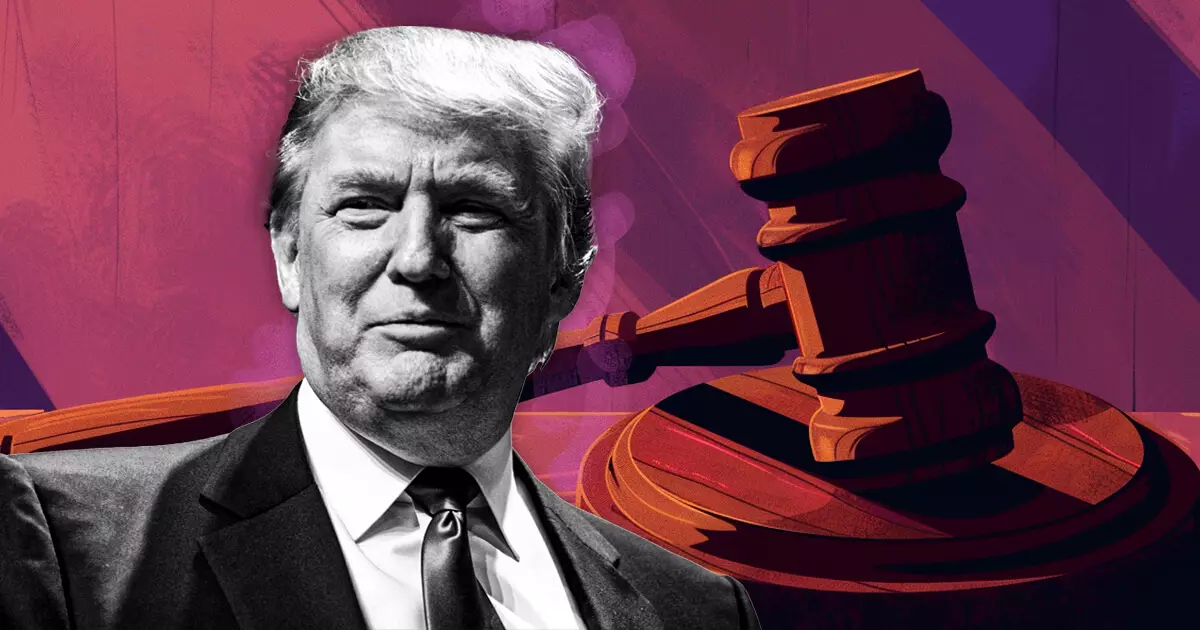The announcement of World Liberty Financial, a decentralized finance (DeFi) project spearheaded by former President Donald Trump, has stirred significant conversation within the cryptocurrency community. Given the high-profile nature of Trump’s involvement, there is a palpable sense of anticipation mixed with skepticism. However, the underlying regulatory framework governing cryptocurrencies in the United States raises concerns about whether this venture can sail smoothly or will be tethered down by bureaucratic complications.
At the forefront of regulatory oversight is the U.S. Securities and Exchange Commission (SEC). Commissioner Mark Uyeda has made it abundantly clear that Trump’s initiative will be subjected to the same rigorous standards as other crypto enterprises. This led to a stern reminder that the SEC functions primarily as a “disclosure regulator.” Such a stance implies that while the commission is not mandating specific outcomes or judging the inherent merit of projects, it will be vigilant about the completeness and transparency of disclosures required from World Liberty Financial.
Uyeda’s focus on disclosure rather than merit signifies a crucial aspect of the SEC’s approach, which has garnered both support and criticism. On the one hand, it is essential for investors to receive transparent information to make informed decisions. Conversely, the current climate is riddled with ambiguity, leading to concerns about whether regulatory burdens may deter innovation in the nascent cryptocurrency sector.
The Partisan Landscape and Its Implications
The political nature of Trump’s venture cannot be ignored. As a polarizing figure in American politics, many observers speculate that resistance from the Democratic Party could further complicate the landscape for World Liberty Financial. This is symptomatic of a broader issue wherein crypto ventures not only face regulatory scrutiny but are also ensnared in partisan battles that may influence the regulatory framework’s direction.
Uyeda’s acknowledgment of potential partisan pushback points to the reality that political affiliations may shape the treatment of crypto projects. Thus, World Liberty Financial must be prepared not only for regulatory hurdles but also for potential political obstacles that could inhibit its growth trajectory.
In terms of strategy, Uyeda’s advice for Trump’s legal team is particularly telling. He emphasized the importance of robust legal representation to navigate what he describes as a “confusing and opaque” regulatory process. This reflects a broader sentiment that the current regulatory environment is challenging for any crypto entrepreneur; however, the stakes are particularly high given Trump’s visibility.
While diligent legal navigation is crucial, it begs the question of whether the SEC will eventually provide clearer guidance to prevent businesses from falling into a regulatory quagmire. As it stands, lack of clarity could hinder not only Trump’s project but also the broader innovation landscape in the U.S. crypto sector.
The announcement of World Liberty Financial has also met skepticism from investors and sector experts who harbor doubts about its practicality and ability to thrive in a highly scrutinized environment. Even with Trump at the helm, the viability of the project hinges significantly on whether regulatory bodies shift towards a more conducive approach in the near future.
Prominent voices within the SEC itself, like Commissioner Hester Peirce, have criticized the current regulatory milieu as “toxic,” emphasizing that the lack of clarity breeds apprehension and reluctance among potential innovators and investors. The need for clearer regulatory frameworks is increasingly being voiced by lawmakers, who are advocating for a collaborative advisory body to delineate clearer guidelines and encourage crypto advancements within America.
World Liberty Financial stands at a crucial juncture where its success is intricately woven into the fabric of regulatory frameworks and political sentiment. While Trump’s ambitions may rival that of U.S. crypto dominance, the path forward is fraught with challenges. The responses from the SEC will be scrupulously monitored, and how well the project manages its disclosures and regulatory relationships could ultimately determine its future. The potential ramifications extend beyond just one venture; they reflect broader questions regarding the future of innovation, governance, and transparency within the cryptocurrency sector in the United States.

